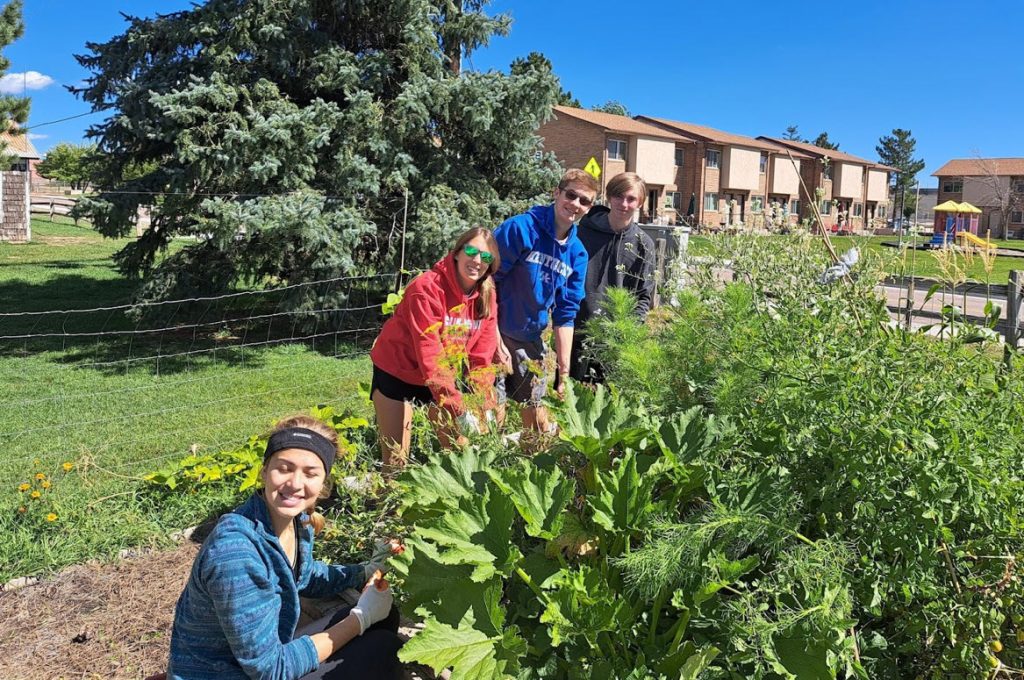By Janet Sellers
With so much rain in June, we likely will have more mosquitoes than usual. Several plants grow well in our area that help make outdoors fun again. Pots of these aromatic herbs around where you’ll be outdoors will also repel garden pests.
Basil is great for cooking. Its eugenol oil compounds confuse and irritate mosquitoes—they’ll leave for another food source. Gently touch the leaves to release the scent.
Catnip, a great pollinator plant, contains nepetalactone, a compound that is up to 10 times better than DEET at repelling mosquitoes, according to the National Library of Medicine. Traditional medicine says to vigorously rub the leaves between your hands and apply them to the skin to last at least 30 minutes. It’s safe around cats and dogs.
Lemon balm, aka bee balm, is a plant in the mint family that deters pests. Made into a hot or cold tea, people use it for its calming effects and other conditions.
The flowers and leaves of marigolds deter bugs. It contains pyrethrum, a natural insecticide. Plant them near doors, windows, and seating areas.
Mint—its menthol keeps pests away. Grows just about anywhere, even in partial shade.
Flower teepees
We’re going to try flower teepee towers this summer. Made with poles (aspen shoots or bamboo, etc.), it can be a teepee big enough for kids to sit in, or just for climbing plants. I’m going to make them for zesty salad nasturtiums (annuals) and climbing roses (perennials). Both are pretty and deer resistant. The deer leave my nasturtiums and a friend’s prickly climber roses alone. Nasturtiums may drop their seeds for next year, the roses will need annual pruning to keep them in check and in shape.
Pine needle myth
A common myth is that pine needles make the soil acidic. They do not. For proof, just test your soil. Weeds and plants don’t grow in pine needle mulched areas because the weed seeds don’t get into the soil to germinate. Plants and seeds unnatural to the forest clime landscape that don’t grow well may need soil amendments because Mother Nature optimizes forest soil for forest life. That keeps the natural pine forests safe from weeds and helps nurture the pine forest microbiome.

Annual Colorado Hummingbird Festival
The Annual Colorado Hummingbird Festival will be on Aug. 4-5 from 10 a.m. to 3 p.m., a celebration of our four Colorado hummingbirds just before the fall migration. Everybody can enjoy hummingbird talks and stories with hummingbird garden-themed arts and crafts, baby alpacas, giant bubbles, a farmer’s market, and more. It is held at the historic Happy Landings Ranch, 17435 Rollercoaster Road at Hodgen Road.
Janet Sellers is an avid “lazy gardener” letting Mother Nature lead the way for simple yet successful gardening. Please send garden tips to: JanetSellers@ocn.me.
Other High Altitude Nature and Gardening articles
- High Altitude Nature and Gardens – Wild Horse Fire Brigade: successful fire mitigation since the beginning of…plants (7/31/2025)
- High Altitude Nature and Gardening (HANG) – Gardening with nature’s beautiful bouncers (7/3/2025)
- High Altitude Nature and Gardening (HANG) – Enjoying nature in summer, high altitude landscaping, and weed control (6/7/2025)
- High Altitude Nature and Gardening (HANG) – May: new trees from tree branches, plant partners, bee kind (5/3/2025)
- High Altitude Nature and Gardening (HANG) – Earth Day and the joys of gardening (4/5/2025)
- High Altitude Nature and Gardening (HANG) – Wild outdoors: pine needle bread, gardening in March (3/1/2025)
- High Altitude Nature and Gardening (HANG) – Fermented February, cocoa mulch, and a chocolate “workout” (2/1/2025)
- High Altitude Nature and Gardening (HANG) – January is a seed starter month (1/4/2025)
- High Altitude Nature and Gardening (HANG) – Winter, our backyards, and forests (12/5/2024)
- High Altitude Nature and Gardening (HANG) – Let’s protect our forests, soil, and gardens (11/2/2024)
